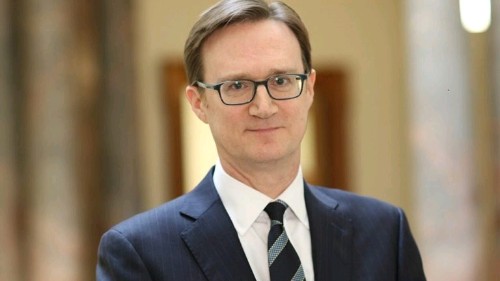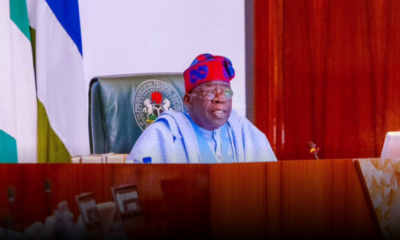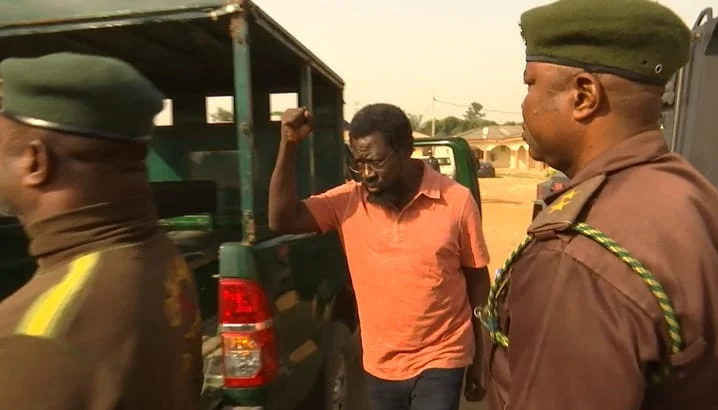Richard Montgomery, British High Commissioner to Nigeria, has said his country’s decision banning international students from bringing family members with them starting in 2024 is to control the inflow of migrants and avoid overburdening the country’s housing infrastructure.
“Many more students are trying to bring their dependents with them… but it’s not always possible to find the housing and services to meet all the needs of all our existing student population…we’ll have to manage our migration in and out of the UK,” Montgomery told State House Correspondents after he emerged from a closed-door meeting with Vice President Kashim Shettima at the Presidential Villa, Abuja.
Wednesday’s meeting comes one month after the new British diplomat to Nigeria handed his letters of Credence to former President Muhammadu Buhari on May 18.
On May 23, the UK Home Office said international students, including Nigerians, would no longer be able to bring family members with them starting January 2024.
It also announced that overseas students would be stopped from switching from the student visa route to a work visa until their studies have been completed.
The decision has been greeted with mixed reactions from international students, schools, and some British lawmakers who argued that the regulation would aggravate labour shortages in critical sectors such as healthcare and threaten the country’s global standing as a top destination for international talent.
But in response to a question from our correspondent, the British High Commissioner gave reasons for the regulation saying, “I think there are two issues here. The first is, it’s not always possible to find the housing and services to meet all the needs of all our existing student population.”
“And second, reasonable people would accept that we have to manage our visitor numbers and we’ll have to manage our migration in and out of the UK just as the Nigerian government would do,” he added.
Montgomery revealed that Nigerian students coming to the UK had increased fivefold in the last three years, even as they make up 10 per cent of those granted UK visas annually.
“That issue was not raised in the meeting (with the Vice President) just now. But I would like to put the media debate about it in a broader context. Last year (2022), for example, the UK granted three million new visas, of which 325,000 were to Nigerians.
“Nigerian visitors constitute over 10 per cent of the people coming to London and the UK.
“It’s a fantastic success story for our universities. And we are really delighted that so many Nigerians are coming to the UK,” he said.
The British High Commissioner revealed that his discussions with the VP highlighted the current policy direction of the Bola Tinubu administration, which, he said, is being warmly received by UK investors.
“As I discussed with His Excellency, the big economic decisions being taken by this government are really important and are being noticed around the world: the removal of subsidy, the exchange rate reform, all of that create a much better investment environment.
“I was in London last week; I was briefing my ministers, but I was also talking to British business in finance, banking and investment sectors. They are all responding very positively to these first decisions,” Montgomery stated.
The discussions also featured areas of assistance by the British government to cushion the effects of the discontinuance of petroleum subsidy, which has spelled “tough times” for Nigerians.
“We know that there are tough times that are going on at the moment, inflation and unemployment.
“The vice president and I also touched on some of the measures that might be possible to cushion the blow of some of these economic pressures.
“But I think the big issue is that these reforms help put Nigeria on a higher growth path; they will attract more investments and the United Kingdom and the city of London see Nigeria as a big opportunity going forward. I will be doing my part to try to boost those, enhance trade and investment,” he noted.

 BIG STORY2 days ago
BIG STORY2 days ago
 BIG STORY4 days ago
BIG STORY4 days ago
 BIG STORY5 days ago
BIG STORY5 days ago
 BIG STORY3 days ago
BIG STORY3 days ago
 BIG STORY4 days ago
BIG STORY4 days ago
 BIG STORY3 days ago
BIG STORY3 days ago
 BIG STORY2 days ago
BIG STORY2 days ago
 BIG STORY1 day ago
BIG STORY1 day ago
























